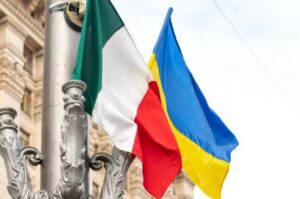
On behalf of Foreign Minister Antonio Tajani, Italy has allocated EUR 13 million to the Energy Support Fund for Ukraine.
“At a time when attacks on Ukraine’s energy infrastructure are intensifying, this decision is an important step in efforts to restore energy systems damaged by the conflict. Italy’s contribution – one of the largest for a single country – will help stabilize the supply of electricity to millions of war-affected Ukrainians in this difficult time,” the Italian Foreign Ministry said on its website.
It is noted that with this contribution, Italy confirms its continued support for the resilience of Ukraine’s energy sector, in particular in connection with the conference on Ukraine’s recovery to be held in Rome next July.
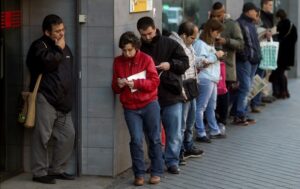
In 2024, Italy demonstrated a significant decline in the unemployment rate, reaching levels unseen in more than a decade. According to the National Institute of Statistics (ISTAT), in October 2024, the unemployment rate fell to 5.8%, the lowest since April 2007.
Between 2019 and 2024, the unemployment rate in Italy showed a gradual decline:
2019: around 9.9%.
2020: increase to 9.3% amid the COVID-19 pandemic
2021: a decrease to 9.5%.
2022: further decline to 8.1%.
2023: further decline to 7.3% in August
2024: reaching 5.8% in October
Among the key factors contributing to the decline in unemployment in Italy are: economic growth, gradual economic recovery after the pandemic contributed to the creation of new jobs. In addition, government programs and initiatives aimed at supporting employment and stimulating the labor market, as well as growth in the tourism and service industries, which are traditionally important for the Italian economy, contribute to the reduction of unemployment.
Despite the overall decline in the unemployment rate, the problem of youth employment remains relevant. In October 2024, the unemployment rate among people aged 15 to 24 was 17.7%, which, however, is lower than the 18.9% rate in September of the same year.
Economists note that despite the positive trends, there are risks associated with a slowdown in economic growth, especially in the industrial sector. According to ISTAT, in the third quarter of 2024, Italy’s GDP remained at the same level, which may indicate a possible economic slowdown in the future.
Thus, although Italy has made significant progress in reducing unemployment over the past five years, further improvement in the labor market will depend on the sustainability of economic growth and the effectiveness of the reforms.
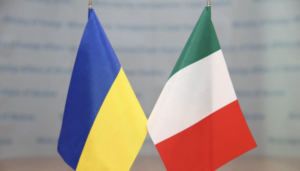
The Ukraine Recovery Conference will be held in Italy in July 2025.
This follows from the conclusions of the European Council meeting on Ukraine, published in Brussels on Thursday.
“The European Union remains committed to supporting Ukraine’s repair, recovery and reconstruction, in coordination with international partners. The Ukraine Recovery Conference hosted by Italy in July 2025 will be important in that context. The European Union will continue to work closely with Ukraine and support its reform efforts on its European path,” reads the document.
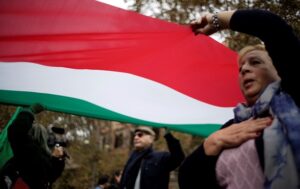
On Friday, Italian citizens went on a general strike demanding higher wages and increased investment in the social sphere, ANSA reports. Employees of the public and private sectors intend to strike for eight hours.
In the transportation sector, by order of Italian Minister of Infrastructure Matteo Salvini, the strike will be limited to four hours. Thus, water transport, buses, subways and trams will stop working from 09:00 to 13:00 local time (10:00 to 14:00 Kyiv time). Air traffic will be suspended from 10:00 to 14:00 local time (11:00 to 15:00 Kyiv time). Firefighters will also not work during this time period.
However, the strike will not affect rail services. A total of 43 protests are planned throughout Italy on Friday. The day before, the Italian Labor Union and the General Italian Labor Confederation called on citizens to go on strike to demand higher wages, increased funding for healthcare, education, public services, and investment in industry.
According to various estimates, there are about 1 million Ukrainian citizens in Italy.
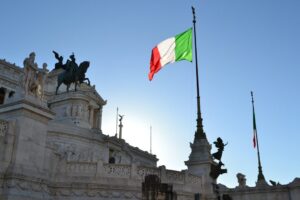
Italy, as one of the leading economies in the European Union, continues to recover from the pandemic and crisis of recent years. However, the labor market is facing many challenges, such as a demographic decline, an aging population, and pressure from migration flows. In the first half of 2024, the Italian labor market showed mixed results: improvement in some sectors and stagnation in others.
The Experts Club Information and Analytical Center analyzed the main trends in the Italian economy, the situation on the labor market and the situation of Ukrainian citizens staying in Italy.
The minimum wage in Italy is still not set at the national level. The issue of introducing a minimum wage has been discussed in the country for a long time, but at the moment, the terms of remuneration are regulated by collective agreements concluded by trade unions and employers in various industries. On average, the minimum wage under the agreements is about 8-9 euros per hour, which, if you are fully employed, corresponds to about 1,300-1,500 euros per month.
According to Experts Club, salaries in Italy vary by region, qualification, and industry. Let’s take a look at the average salaries in the main sectors of the economy:
Employment trends:
As of the beginning of 2024, there are about 5 million migrants in Italy, which is almost 9% of the total population. The main nationalities among migrants:
At the beginning of 2024, the number of Ukrainian citizens in Italy increased significantly due to the war in Ukraine. As of February 2024, there are more than 254,000 Ukrainians in Italy who are officially registered with temporary protection. However, the actual number of Ukrainians in the country may exceed 1 million, given the constant flow of refugees and migrants, as well as those who have not officially registered.
These migrants are mainly employed in agriculture, construction, and services related to elderly and childcare. Ukrainians, for example, after the outbreak of war in 2022, made up a significant share of home care workers.
According to the Experts Club information and analytical center, one of the main challenges for Italy is the integration of migrants into the economy. Some sectors are facing a shortage of skilled workers, while others are facing the problem of excess labor, especially among young people. In the coming years, the government will continue to implement programs aimed at supporting the integration and training of young professionals, as well as reducing bureaucratic barriers to job creation.
Thus, the labor market in Italy in the first half of 2024 shows both positive and negative trends. The economy needs skilled workers, especially in the technology and healthcare sectors, while the service sector continues to depend on migrants, who play an important role in solving the country’s demographic problems.

The price of Bitcoin (BTC) remained unchanged due to the event and surpassed the $68,000 mark for the first time since late July.
Italian Deputy Finance Minister Maurizio LEO said the government will raise taxes on capital gains in cryptocurrencies such as Bitcoin from 26% to 42%, Reuters and Bloomberg reported.
According to Bloomberg, the Italian cabinet made the decision because “this phenomenon is spreading,” the LEO said of Bitcoin during a conference call on Wednesday.
The move comes in the wake of Italy’s decision to strengthen its tax on digital services as part of plans to boost revenue in its 2025 budget.
The price of Bitcoin (BTC) was unchanged, posting a weekly gain of more than 12%, surpassing the $68,000 mark for the first time since late July.